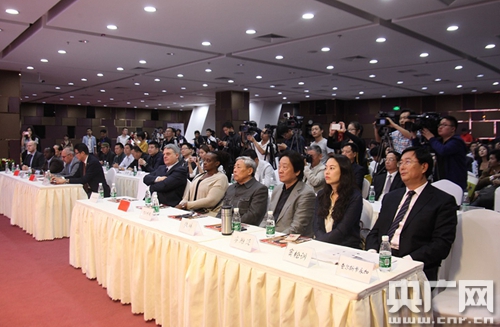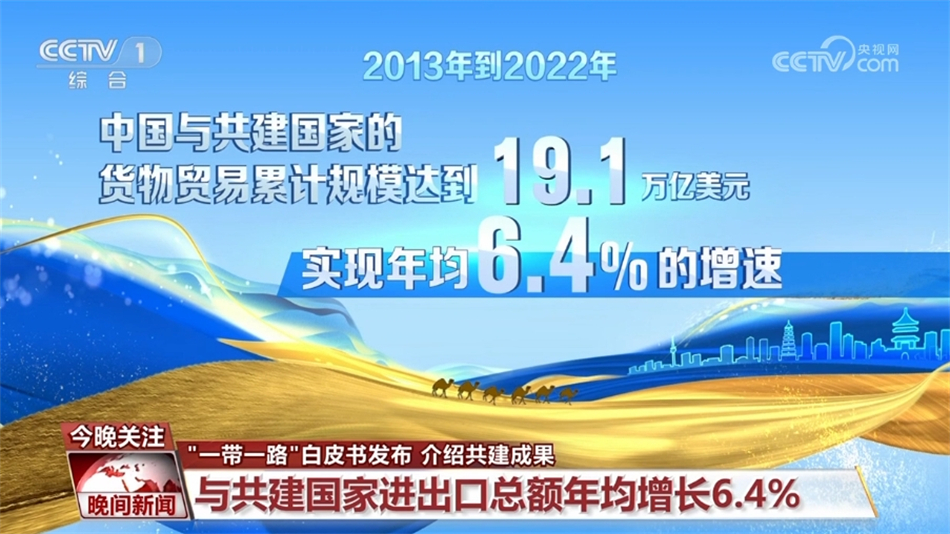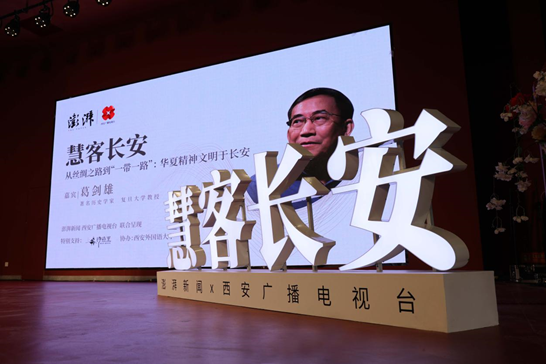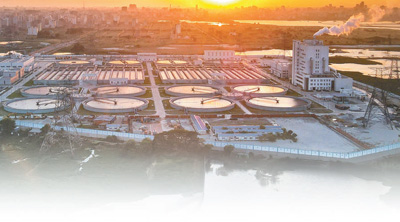Parliamentarians From Many Countries Witnessed China’s Contribution To Modernization And Global Governance In Xinjiang
Parliamentarians From Many Countries Witnessed China’s Contribution To Modernization And Global Governance In Xinjiang
On September 12, foreign parliamentarians experienced the Horgos Chinese Cultural Center in the China-Kazakhstan Horgos International Border Cooperation Center. Photo by Liu Chenggang/At the foot of Tianshan Mountain, conversations about peace, development and win-win cooperation are slowly unfolding. recently

On September 12, foreign parliamentarians experienced the Horgos Chinese Cultural Center in the China-Kazakhstan Horgos International Border Cooperation Center. Liu Chenggang/photo
At the foot of the Tianshan Mountains, dialogues on peace, development and win-win cooperation slowly unfolded.
Recently, more than 60 foreign parliamentarians from five continents visited Beijing and Xinjiang to participate in the 2025 International Parliamentarians Friendly Exchange Forum hosted by the Chinese People's Association for Friendship with Foreign Countries. They inspected China's development achievements on the spot and gained a close understanding of the profound changes in Xinjiang society. During on-site visits and dialogue exchanges, they truly felt the vitality of this land, and responded positively and spoke highly of China's promotion of the Belt and Road Initiative and global governance initiatives.
“I saw a Xinjiang full of vitality, openness and confidence”
This year marks the 70th anniversary of the founding of the Xinjiang Uygur Autonomous Region. Over the past 70 years, under the leadership of the Communist Party of China, Xinjiang has transformed from poverty and backwardness to prosperity and openness, and from a remote frontier to the forefront of opening up to the outside world. From hundreds of wastes awaiting development to hundreds of industries flourishing, this land is writing a vivid chapter of Chinese modernization.
In Xinjiang in September, the sky is high, the clouds are vast, the cotton fields are white, and the streets are full of life. When the delegation visited Aksu, Kashgar, Kezhou, Ili and other places, they saw that the neighborhoods were clean, the industries were prosperous, and the people lived happily. Dominic Speaker Joseph Thomas Isaac said with emotion: "People here are smiling, children are running freely, and the streets are full of energy. People of different nationalities live like one family. This is the real Xinjiang."
Huocheng County in Ili Kazakh Autonomous Prefecture is located at 44° north latitude. It belongs to the global lavender golden planting belt with Provence, France, and has built the largest lavender planting base in China. According to statistics, in 2014, there were 6 impoverished villages and 6,005 households in Huocheng County living in difficulty, with per capita disposable income of less than 5,000 yuan. Nowadays, Huocheng County has deeply cultivated the entire industrial chain of the "Purple Economy", and the villages that were once lagging in development have gradually transformed into rural tourism demonstration villages, realizing that "one flower makes one person rich".
Standing in the lavender garden, Vice Chairman of the Lao National Assembly Somma Phonsena picked up a stick of lavender and smelled its fragrance. He was deeply impressed by the business model of the local lavender factory to help farmers get rid of poverty. He praised, "While the company is making money, it helps farmers solve poverty. I hope to bring the successful experience here back to Laos to help farmers solve poverty problems in this country."
Because of her study experience in China as a teenager, Somma Punchena speaks fluent Mandarin. When he came to Xinjiang this time, he said: "I didn't expect Xinjiang's economic development to be so fast. The Chinese often say that 'a sight is worth a hundred words'. I heard others say it is better to come to Xinjiang to experience it for myself. I used to think that Xinjiang was very remote, but now through the Horgos port, products can be continuously transported to the international market. The mountains are no longer high, the roads are no longer far, we are closer!"
"I see here that there is both a cherishment of history and culture and an embrace of innovation. This inclusive attitude comes from profound civilizational self-confidence." Ettore Licarei, Vice Chairman of the Foreign Affairs and Defense Committee of the Italian Senate, pointed out from a cultural perspective that the development of Xinjiang shows the harmonious coexistence of tradition and modernity.
“We see the real Xinjiang here, a Xinjiang full of vitality, openness and confidence.” Belarusian MP Aleynik praised.
"I hope that African leaders can come to China, especially to Xinjiang, to personally inspect and learn from the peaceful development experience here." said Busayo Oluwule Oke, a member of the Nigerian parliament. "Before coming, I knew very little about China, but during my inspections in Kashgar and Urumqi, Xinjiang, and through exchanges with local people, I witnessed the vigorous development of this region with my own eyes."
In Xinjiang today, people of all ethnic groups embrace each other like pomegranate seeds, and exchanges, exchanges, and integration continue to deepen. Neker Geyer, chairman of the Foreign Affairs Committee of the Libyan House of Representatives, said that China has created an environment for equal development for different ethnic groups, and people of all ethnic groups share education and employment opportunities. “The society is stable and the economy is active. These facts fully demonstrate that China’s governance system is effective.”
"China's practice has proved that development itself is the most effective guarantee of human rights." Sergio Aguiar, a member of the Brazilian state of Ceará, said that China has achieved a balance between economic growth and social stability in Xinjiang, providing a model for developing countries to refer to.
Mexican Senator Polevinsky also said, "Chinese leaders emphasized that no place or nation can be excluded from development. I strongly agree with and am deeply moved."
During the inspection, the foreign parliamentarians visited industrial planting bases, communities, bazaars, cotton fields, enterprises, museums and other places to gain an in-depth understanding of Xinjiang's practical achievements in rural revitalization, ethnic unity, and grassroots governance. Many representatives expressed their hope to further understand Xinjiang's rich resources and characteristic industries, explore cooperation potential, and promote diversified exchanges in different fields.
"Joining the Belt and Road Initiative is a road to peace, prosperity and openness."
As win-win cooperation becomes the development trend of the times, the grand initiative of jointly building the “Belt and Road” continues to release new vitality on the international stage. Data shows that the high-quality Belt and Road Initiative has lifted more than 40 million people out of poverty. In the first eight months of this year, my country's imports and exports to countries co-building the "Belt and Road" reached 15.3 trillion yuan, a year-on-year increase of 5.4%.

On September 12, foreign parliamentarians visited Xinjiang Huocheng Economic Development Zone. Liu Chenggang/photo
Xinjiang is located in the center of the Eurasian continent and is the hub of the ancient Silk Road. In recent years, Xinjiang has relied on its regional location advantages to build an open pattern such as one port, two districts, five major centers, and a port economic belt. As of July 2025, the number of China-Europe (Central Asia) trains has exceeded 10,000, becoming a golden channel connecting Asia and Europe. This is a vivid epitome of the local practice of jointly building the "Belt and Road" initiative.
Chairman of the Standing Committee on International Affairs and National Security of the House of Representatives of the National Assembly of Belarus and former Foreign Minister Sergei Alejnik pointed out: "The Belt and Road Initiative is one of the most influential international cooperation initiatives in the 21st century. It is not a unilateral plan of a certain country, but a global, open and inclusive cooperation platform. The principle of 'co-consultation, co-construction, and sharing' advocated by China embodies the true spirit of equality."
Sergey Aleinik said: "The joint construction of the 'Belt and Road' initiative belongs to the future of all participating countries, and development and cooperation in the initiative are the key. The China-Belarus Industrial Park with an investment of more than 1.5 million US dollars is a pearl on the Silk Road. We hope to achieve innovative development, apply digital technology, green energy, build smart cities, and other high-tech to upgrade the quality of cooperation."
"Pakistan-China cooperation is based on win-win cooperation, which is completely different from the colonial plunder of Western countries in the past." Mohammad Ilyas Chaudhry, a member of parliament from Pakistan, took the China-Pakistan Economic Corridor as an example. This project has brought a total investment of about 25 billion U.S. dollars, created jobs for hundreds of thousands of people, and significantly improved the economic structure of the local areas along the route.
Congressional representatives from African and Latin American countries also expressed sympathy. Emmanuel Barbosa, First Deputy Speaker of the National Assembly of Cape Verde, believes that the joint construction of the "Belt and Road" has promoted the continuous deepening of South-South cooperation and promoted infrastructure construction and regional connectivity in African and Latin American countries. "This is a road to peace, prosperity, and openness, and embodies the concept of shared development between China and the world."
Uruguayan Congressman Nicolás Vieira pointed out that China has successfully achieved a combination of historical heritage and strategic pragmatism on its development path. Guided by the concept of a community with a shared future for mankind, it has provided new ideas and inspiration for developing countries to explore independent, cooperative and win-win development paths.
"China has always adhered to the concept of 'harmony without uniformity', which not only inspires the Chinese people, but also provides important inspiration to the international community." said Mauritian MP Barikshna Babaji.
“Global governance initiatives point a new direction for the international community”
Peace and development are the common aspirations of people all over the world. However, the peace deficit, development deficit, security deficit and governance deficit continue to increase. The world is intertwined with chaos and the future is full of uncertainty. How to make cooperation overcome confrontation, trust replace suspicion, and win-win go beyond zero sum have become issues of the times before mankind.
In Xinjiang, many foreign parliamentarians unanimously mentioned that the world today urgently needs a new governance system.
At the Shanghai Cooperation Organization Tianjin Summit held from August 31 to September 1, China solemnly proposed a global governance initiative and called on all countries to join hands to build a more fair and reasonable global governance system.
Representatives of parliamentarians from many countries said that this initiative provides the international community with new cooperation ideas and demonstrates China's responsibility in promoting the construction of a community with a shared future for mankind. "Only when all countries work together and shoulder responsibilities, can the world achieve true peace and prosperity." Several parliamentarians pointed out that China's inclusive attitude in participating in global governance reflects the broadmindedness and foresight of a responsible major country.
Liberian House of Representatives Speaker Richard Kuhn pointed out in his speech that the global governance initiative proposed by China has injected much-needed stabilizing force into the current world. He said: "Today's world is full of uncertainties, with frequent regional conflicts, rising unilateralism, and sluggish global economic recovery. China's global governance initiative, with equality, cooperation, and win-win as its core, has pointed out a new direction for the international community."
Former New Zealand Speaker David Carter believes that China's development miracle is "one of the most amazing achievements in the history of human civilization." He said: "I have witnessed with my own eyes the transformation of China from a country dominated by agriculture to a center of global manufacturing and innovation. Hundreds of millions of people have been lifted out of poverty and are living a relatively prosperous life. This change is unprecedented in the path of peace and development."
Sergei Aleinik said that China’s global governance initiative provides new ideas for reforming and improving the international system. He said: "The global governance initiative proposed by China's top leader echoes the three major initiatives of global development, security and civilization, and constitutes the 'four pillars' that promote the world towards justice and balance."
"China's initiative has practical guiding significance." Jedikor Polevinsky, chairman of the Asia-Pacific Foreign Affairs Committee of the Mexican Senate, said, "China's philosophy is not a declaration on paper, but a plan implemented in action. When globalization encounters countercurrents, China still firmly promotes open cooperation. This confidence and determination itself is the strength that the international community needs."





